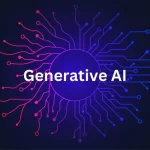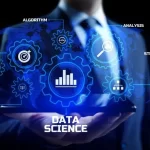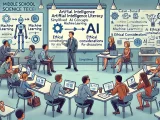
How ChatGPT is Revolutionizing Data Science
December 18, 2024Introduction
Artificial Intelligence (AI) is reshaping industries across the globe, and data science is no exception. Among the powerful AI tools, ChatGPT stands out as a transformative force in the field. By streamlining workflows, enhancing creativity, and ensuring ethical practices, ChatGPT is redefining how data scientists approach complex problems. This blog explores how AI-assisted tools like ChatGPT are revolutionizing data science, from data preprocessing and visualization to ethical considerations and domain-specific applications.
How ChatGPT Impacts Data Science Workflows
Streamlining Data Science Tasks
ChatGPT is a game-changer in automating time-consuming processes, enabling data scientists to focus on strategic and creative problem-solving. Its impact spans several core areas:
- Data Cleaning and Feature Engineering
- Automates mundane tasks like detecting and correcting data inconsistencies.
- Suggests innovative features to improve machine learning model performance.
- Exploratory Data Analysis (EDA)
- Assists in identifying patterns, trends, and anomalies through advanced data exploration capabilities.
- Generates insights that guide deeper analysis.
- Model Development and Interpretation
- Proposes data-driven approaches for model selection and optimization.
- Interprets machine learning models, offering alternative pathways for improving pipeline efficiency.
- Data Visualization and Reporting
- Creates compelling visualizations and reports, simplifying complex data insights for stakeholders.
The Power of Human-AI Collaboration
A “human-in-the-loop” approach is integral to maximizing ChatGPT’s capabilities. This collaborative methodology ensures that AI complements human intelligence rather than replacing it.
- Augmented Human Capabilities
ChatGPT handles repetitive tasks, reduces human errors, and accelerates workflows, allowing data scientists to channel their expertise into high-impact areas like hypothesis generation and strategic decision-making. - Enhanced Creativity and Problem-Solving
ChatGPT sparks innovation by offering fresh perspectives and generating alternative insights. These capabilities empower data scientists to devise unique solutions to complex challenges. - Contextual Understanding and Validation
While ChatGPT excels in processing large datasets, human oversight ensures its outputs align with project goals. Data scientists provide the contextual and domain-specific knowledge AI models lack, creating a powerful symbiotic relationship.
Ethical Considerations in AI-Assisted Data Science
AI models like ChatGPT can inherit biases present in training data, posing significant challenges. Ethical data science practices must address these concerns to maintain the integrity of research and applications.
- Bias Mitigation
- Develop methods to detect and reduce biases in AI-generated content.
- Ensure fairness and accountability in outputs to avoid perpetuating systemic inequalities.
- Accountability and Fairness
- Human oversight is crucial for validating AI outputs and holding systems accountable.
- Transparent workflows and decision-making processes enhance trust in AI-assisted systems.
Advancements in AI and Natural Language Processing
ChatGPT’s transformative capabilities stem from advancements in AI and Natural Language Processing (NLP). Models like GPT-3 leverage transformer-based architectures, enabling more sophisticated language understanding and contextual relevance.
- Domain-Specific Adaptability: Fine-tuning ChatGPT on specialized datasets can enhance performance in fields like healthcare, finance, and scientific research.
- Resource Optimization: Research into efficient model designs is paving the way for sustainable AI applications without compromising performance.
Enhancing Data Preprocessing and Visualization
Data Preprocessing
ChatGPT automates essential preprocessing steps, such as:
- Cleaning datasets by correcting errors and filling gaps.
- Generating new features to improve machine learning algorithms.
Data Visualization
- Quickly generates insightful visual representations, facilitating the exploration of patterns and relationships.
- Simplifies the communication of findings, making data accessible to non-technical audiences.
Limitations and Future Research
While ChatGPT offers immense potential, several challenges remain:
- Domain-Specific Performance
- Requires fine-tuning to handle specialized jargon and datasets effectively.
- Resource Efficiency
- Calls for optimization techniques to reduce computational costs without sacrificing quality.
- Data Augmentation
- Employing data augmentation strategies can diversify training datasets and enhance AI performance.
Future research will focus on these gaps, ensuring that ChatGPT remains a robust and adaptable tool for diverse data science applications.
Conclusion
AI-assisted ChatGPT is a versatile and transformative tool that empowers data scientists by automating repetitive tasks, enhancing creativity, and fostering collaboration. However, human oversight remains essential to ensure ethical practices, mitigate biases, and validate AI-generated insights. As research continues to optimize ChatGPT for domain-specific applications, the synergy between humans and AI promises to unlock new possibilities in data science, pushing the boundaries of innovation and efficiency.
Reference
Valli, L. N., Sujatha, N., Mech, M., & Lokesh, V. S. (2024). Exploring the roles of AI-Assisted ChatGPT in the field of data science. In E3S Web of Conferences (Vol. 491, p. 01026). EDP Sciences.

















